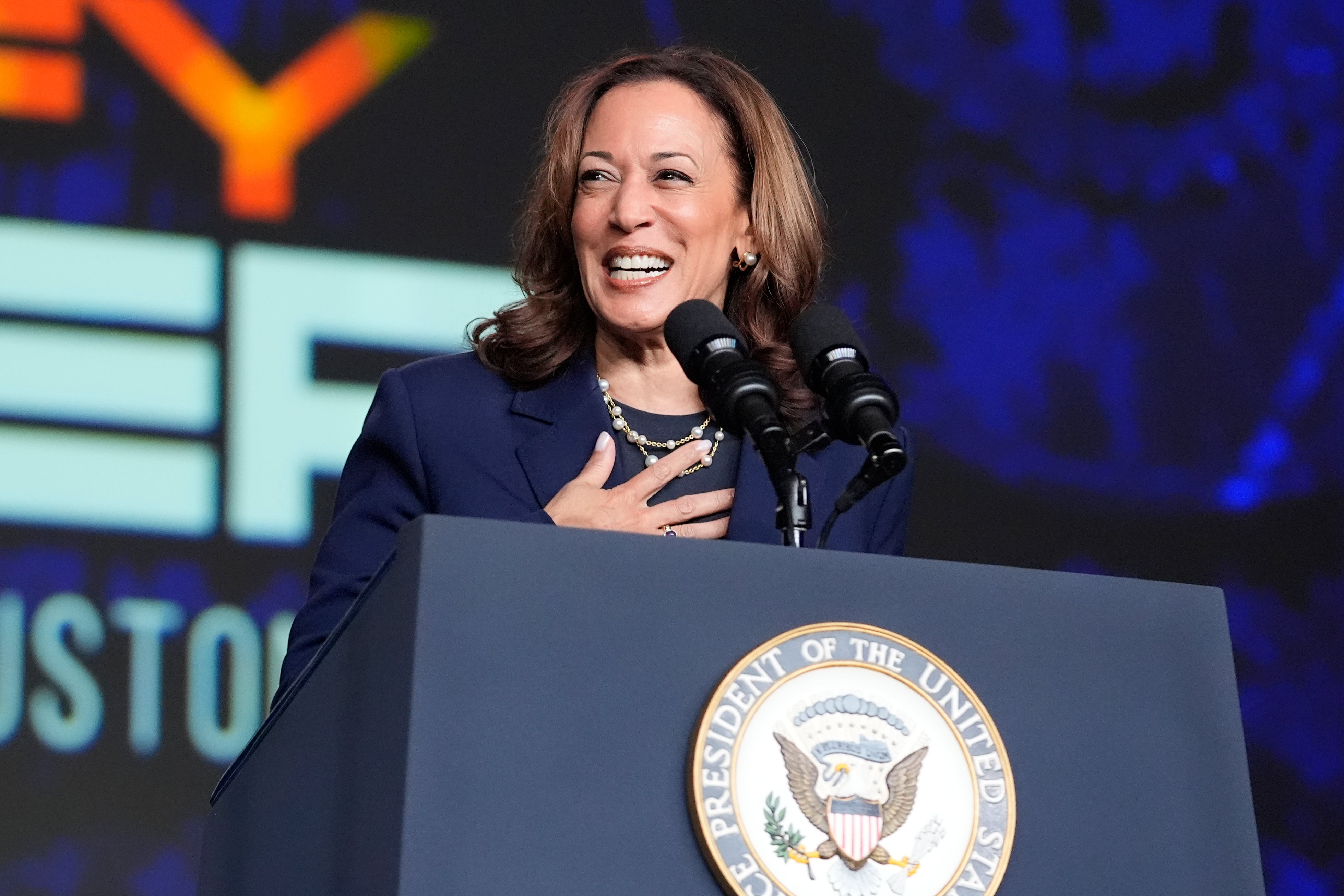People are questioning Kamala Harris over her accent change – but we all do it, don’t we?
If JD Vance and Donald Trump think modifying the way you speak to suit different situations is bad, they should hear me talk to builders, writes Will Gore


Kamala Harris is on a roll. Joe Biden’s decision – at last – to withdraw as the Democratic Party candidate in the upcoming election has changed the character and momentum of the entire presidential race. And Harris has the wind in her sails.
Republicans seem baffled and have spent the last fortnight trying to figure out how best to respond to the changed circumstances. Donald Trump and JD Vance being who they are, it’s no great surprise that their instinct is to attack through thinly veiled misogyny and xenophobia.
First, we had Trump questioning Harris’s identity as a Black woman: “I didn’t know she was Black until a number of years ago when she happened to turn Black and now she wants to be known as Black”, he said at a conference of the National Association of Black Journalists. “So, I don’t know,” he continued, “is she Indian? Or is she Black?”
Presumably, Trump doesn’t really think this is a binary choice. After all, he is living proof that it’s quite possible to be several things at once – in his case, those happen to be a bigot and a performative ass.
Anyhow, after this nonsense, Trump’s peculiar pick for vice-president decided to chime in. Following an appearance at a rally in Georgia where Harris had appeared fairly modestly to make her accent a little more southern, Vance was quick to call foul. “She’s a phoney”, he told supporters. “They don’t talk like that in Vancouver or Quebec or wherever she comes from”.
This twin-pronged assault is plainly no accident. It has echoes of the birtherism conspiracy which Trump raised against Barack Obama when he sought to delegitimise his predecessor’s right to hold America’s highest office. Questioning Obama’s background and heritage garnered attention last time, so why not roll it out again against Harris?
But Vance’s angst about her accent shift was particularly absurd. For one thing, it was hardly a drastic change – not even in the same ballpark as that time after the 2022 Oscars when Liam Payne seemed to become Irish when talking to Good Morning Britain.
In any case, almost everybody code-switches to some degree, either to engage a particular audience or express a particular view or feeling using the most suitable syntax.
If JD didn’t like Kamala’s southern states accent in Georgia, he would absolutely despise the voice I use for electricians and builders, or the lower register I reserve for Old Testament readings in church, or the estuary English I slip back into at football matches.
Luckily for me, I’m unlikely to get called out on the switches – though my wife may gently mock me when I start elongating vowels and dropping the odd “g” to fit in with the brickies working on our garden wall. For people in the public eye, it’s naturally more likely to be noticed and there are any number of examples.
Earlier this year, the actor Millie Bobby Brown came under scrutiny for apparently using a British accent in interviews here in the UK, but showcasing an American accent in the US. “I’m trying my best”, she said when asked about it. “When I’m with people like Jimmy Fallon who have a very American accent, I wanna replicate it! And now I’m in England, I wanna replicate that! I don’t do it intentionally”.
The fact that Brown spent part of her childhood living in the UK, before moving to America at the age of eight, may help to explain her radical accent changes. But really, it’s just about fitting in with the people you happen to be with at the time – and what’s wrong with that?
A multiplicity of accents or dialects or languages can all be genuine. The voice I use at work might be slightly different from the one I use with my children, but they are both natural and both mine. So is the swearier syntax I bring out at the pub with old friends (“fahkin’ ’ell, mate!”) and so is the “even-posher-than-usual” accent I keep in hand for court appearances and meetings with royalty (“heavens above, Your Majesty!”).
Far from making someone a phoney, this kind of thing is entirely normal – which may explain why Vance doesn’t recognise it, and why Kamala Harris is connecting with people across America.
Join our commenting forum
Join thought-provoking conversations, follow other Independent readers and see their replies
Comments
Bookmark popover
Removed from bookmarks